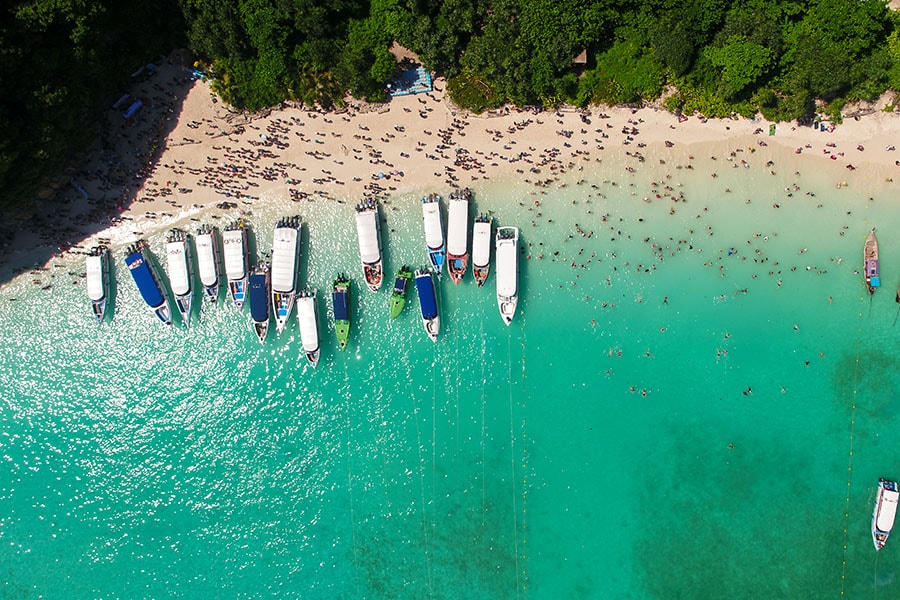
Can you avoid contributing to overtourism on your next vacation?
Numerous restrictive policies have sprung up all over Europe this summer in an attempt to limit over-tourism, a real burden for both the local population and the environment
 Damaged by overtourism, Koh Phi Phi's famous Maya Bay beach is closed until September 30.
Image: Shutterstock
Damaged by overtourism, Koh Phi Phi's famous Maya Bay beach is closed until September 30.
Image: Shutterstock
It may be time to head back to school or work, but some people are already thinking ahead to their next vacation. Following a summer tourist season marked by devastating fires and intense heat waves, awareness of the urgent need for action to better preserve the planet may lead vacationers to aim for more sustainable holidays, including avoiding destinations plagued by overtourism.
Strolling tourists are forbidden from stopping in the Italian village of Portofino to prevent pedestrian bottlenecks; visitors now have to reserve their place to access certain Calanques in Marseille, France; and a visitor quota has been introduced on the island of Bréhat in Brittany and on the Mediterranean island of Porquerolles. Numerous restrictive policies have sprung up all over Europe this summer in an attempt to limit overtourism, a real burden for both the local population and the environment. Now, as Europe heads back to school or work, thoughts might turn to potential destinations for a forthcoming vacation. But with growing ecological awareness, and a desire to escape overcrowding and tourist regulation systems, it might be worth considering places in the world that aren't plagued by overtourism.
To pinpoint areas choked by tourist crowds, it could be helpful to look at the number of international arrivals (sourced by Euromonitor International) and to cross-check the data with the number of local residents. An analysis carried out by the Moneytransfers.com website does just that, and the results highlight the stifling nature of tourism in Thailand. All in all, Thailand takes the top three slots in this ranking of destinations suffering most from overtourism. In particular, the island of Phuket has 118.5 tourists per inhabitant, followed by the city of Pattaya with 98.7 tourists per inhabitant, and the island of Krabi has 72.2 tourists per inhabitant. Authorities in Thailand have taken steps to help preserve marine life in some zones by temporarily closing certain beaches or protected areas to visitors for defined periods.







